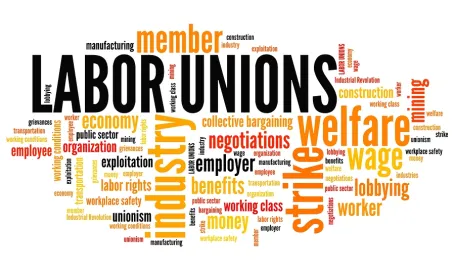The West Virginia Supreme Court has dissolved the preliminary injunction of a lower court prohibiting the enforcement of the state’s right to work law. The majority agreed to remand the litigation to the lower court for a decision on the merits of the AFL-CIO’s constitutional challenge to the West Virginia Workplace Freedom Act.
The Supreme Court found the respondent, the West Virginia AFL-CIO (unions), “failed to show a likelihood of success in their legal challenge to the law’s constitutionality.” In his concurring opinion, Chief Justice Alan Loughry concluded the unions showed “no” chance of success on the merits. The court repeated the unions “have not directed us to any federal or state appellate court that, in over seven decades, has struck down such a law.”
The court was making reference to the unions’ argument that the state right to work law “takes unions’ property without just compensation” by forcing unions to represent “free riders”, or employees who choose not to join a union but whom the union has a duty to represent when the union is the exclusive bargaining agent of a work force. The court held the unions failed to show the state law was unconstitutional “beyond a reasonable doubt”, in part because unions only become the “exclusive” bargaining agent of all employees by choice, and therefore the unions could escape the duty to represent non-member employees by choosing to represent only members of the union. The court cited the US Supreme Court for the finding that “unions have no constitutional entitlement [under the First Amendment] to the fees of non-member employees.”
The court also scolded the lower court for demonstrating a lack of “celerity”, or swift movement, in resolving the case on the merits. The right to work law took effect July 1, 2016. The lower court announced a verbal injunction of the law on August 19, 2016, issued a written injunction on February 24, 2017 and continues to ponder the ultimate decision on the merits. The majority wrote “… (b)ecause of the far-reaching effect of Senate Bill 1 and its potentially substantial impact upon the public interests, in the future, we encourage the circuit to act with greater celerity in trying this case to resolution.” The Chief Justice was more critical, writing “… (t)he circuit court’s issuance of an injunction in this matter was not merely imprudent, but profoundly legally incorrect ... twenty-eight states have a right-to-work law. None has been struck down, much less on the grounds advanced by the (unions) … This monumental failure of legal reasoning was compounded by extraordinary and baseless delay occasioned by the circuit court … [which should] assiduously avoid further delay and grant this matter its foremost attention.”
Given the unusually direct and clear opinions from the majority it is likely the lower court will promptly resolve the parties’ summary judgment motions at the circuit court level, and reject the arguments advanced by the unions which were rejected by the Supreme Court.
The West Virginia Workplace Freedom Act protects employees from being required to join unions and from paying union dues or fees in order to remain working. It also invalidates any language in a collective bargaining agreement that would require an employee to be a member of a union or pay agency fees to remain working.
The court’s decision took immediate effect. The West Virginia Workplace Freedom Act is effective as of September 15, 2017.



 />i
/>i
